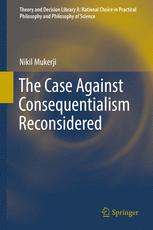

Most ebook files are in PDF format, so you can easily read them using various software such as Foxit Reader or directly on the Google Chrome browser.
Some ebook files are released by publishers in other formats such as .awz, .mobi, .epub, .fb2, etc. You may need to install specific software to read these formats on mobile/PC, such as Calibre.
Please read the tutorial at this link: https://ebookbell.com/faq
We offer FREE conversion to the popular formats you request; however, this may take some time. Therefore, right after payment, please email us, and we will try to provide the service as quickly as possible.
For some exceptional file formats or broken links (if any), please refrain from opening any disputes. Instead, email us first, and we will try to assist within a maximum of 6 hours.
EbookBell Team

0.0
0 reviewsThis book argues that critics of consequentialism have not been able to make a successful and comprehensive case against all versions of consequentialism because they have been using the wrong methodology. This methodology relies on the crucial assumption that consequentialist theories share a defining characteristic. This text interprets consequentialism, instead, as a family resemblance term. On that basis, it argues quite an ambitions claim, viz. that all versions of consequentialism should be rejected, including those that have been created in response to conventional criticisms. The book covers a number of classic themes in normative ethics, metaethics and, particularly, ethical methodology and also touches upon certain aspects of experimental moral philosophy. It is written in clear language and is analytic in its argumentative style. As such, the book should appeal to students, graduate students as well as professional academics with an interest in analytic moral philosophy.